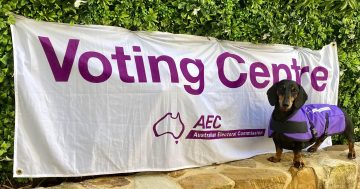
Caroline Le Couteur says the Greens’ proposal will “not stop politicians misleading people, but it is a step in the right direction”. Photo: File.
Politicians telling porkies is nothing new during an election year, but legislating a standard of truth in political advertising has been a contentious point in Australia for decades.
The first laws outlawing untrue, misleading or deceptive political advertising were passed by the Commonwealth in 1983, but were quickly repealed in 1984 after a Parliamentary Committee found that the legislation was ineffective and that political advertising was not possible to control. However, with less than 100 days until the Territory’s election, the ACT Greens want to give electoral reform another go.
“Soon Canberrans will be asked to elect a new government. Voters should be able to go to the polls knowing exactly what they are voting for,” ACT Greens democracy spokesperson Caroline Le Couteur said.
“Our proposal will stop political parties and candidates outright lying regarding matters of fact during election campaigns.”
While Labor supports the amendments in principle, a former senior official at the ACT Electoral Commission who spoke to Region Media on condition of anonymity called the legislation a “clumsy mechanism” that would be almost impossible to enforce.
The enforceability of such laws would be difficult as most policy announcements are prospective and reprimanding breaches would take too long to be effective. It can take months or years for cases to go through the courts, which removes the efficacy of the legal threat if a politician decides to put up a poster four days before an election, the former senior official said.
Despite admitting the legislation’s shortcomings, Ms Le Couteur said the measures were the right way to move forward.
“This will not stop politicians misleading people, but it is a step in the right direction.”
South Australia is currently the only Australian jurisdiction with truth in political advertising laws, but a research paper from The Australia Institute – which supports truth in political advertising laws – found that “the [SA] Electoral Commission is at times uncomfortable with its role as adjudicator of the truth”.
It was the same concern expressed by the former senior official in the ACT.
The report also found that “truth in political advertising laws are possible without using a statutory body as the arbiter”, but that the offence is rarely prosecuted.
“Instead, the law is mainly realised through the Electoral Commissioner’s requests for withdrawal and/or retraction, which appear to be largely honoured,” the report said.
The situation is the same in the ACT, according to the ACT Electoral Commission’s 2016 election review.
In 2016, there were 132 complaints made relating to a party and a candidate’s activity, up from 110 in 2012 and 105 in 2008. However, the majority of these complaints related to canvassing within 100-metres of a polling place and incorrect authorisation of advertisements.
“Where the Commissioner was of the view that a breach of the Act may have occurred, the Commissioner’s first approach was to contact the potential offender and ask them to comply with the Act,” the 2016 election review found.
“All reported cases of unauthorised electoral matter are addressed in the first instance with a request to cease distribution of unauthorised matter and to ensure the matter is correctly authorised.
“This process is generally very effective. The Commissioner did not see cause to refer any unauthorised material to the Australian Federal Police for prosecution in 2016.”
It is currently illegal at both the Territory and Federal levels to mislead or deceive a voter on how to cast a ballot, which includes incidents like fraudulent voting cards.
















